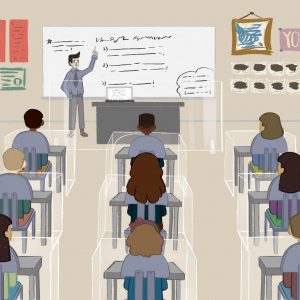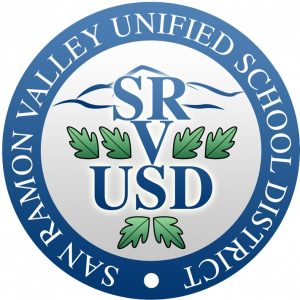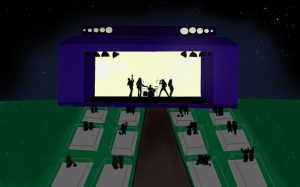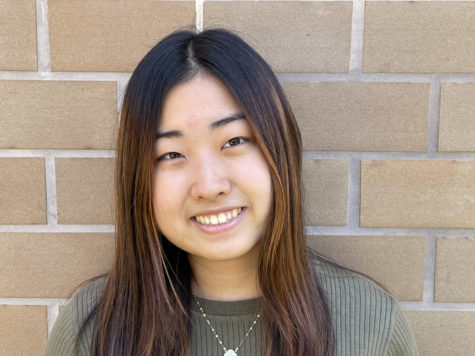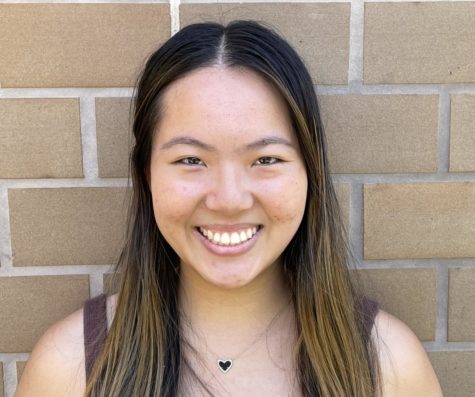DVHS clubs struggle during COVID-19
December 4, 2020
DVHS club members have adapted to new ways of running their clubs during shelter-in-place, but are struggling to pursue their agendas while following COVID-19 regulations.
By Nov. 2019, most DVHS clubs had gathered all their members, finished their first meetings and started carrying out their events for the year. However, because the coronavirus outbreak has driven everyone online, member participation has decreased while officers are uncertain about club events.
Pre-pandemic, the K-pop Club met for a couple of hours every Friday to practice their dances. However, because the full club is unable to come together and dance, officers have decided to split the club into groups of five to meet while being appropriately socially distanced.
“We wanted to integrate what we’ve been doing before and … bring that same element of joy back, but still stay within the social distancing code,” current K-pop Club Vice-President and senior Amber Le said.
Alternatively, The DVHS Circle of Friends Club is working to hold their events virtually through Zoom. DVHS Circle of Friends provides a safe environment for special needs students to interact with general education students through lunch and other school activities.
“Even if we can’t have physical lunches, we want to do something just because sometimes that interaction means everything [for special needs students],” DVHS Circle of Friends President and senior Daniela Wise said.
In order to maintain that interaction, the Circle of Friends Club is transferring its “Friday Fun Festivities,” a monthly two-hour long event where participants can dance and socialize together, online.
However, because club members and special needs students are unable to meet face-to-face, Wise recognizes that there are a lot of difficulties that arise as a result of looking at everyone through a screen.
“Teachers have talked about how hard it is to manage students on Zoom and I really feel that during these events,” Wise said. “Some kid wants to shout out every single person before they perform a song, and I have to coordinate that … and then the other one just wants me to constantly private chat them.”
Because Circle of Friends focuses on special needs students, Wise thinks that it is especially difficult to interact with them in an online setting.
“[These students] don’t know what’s going on and you can’t explain it to them. That makes it 10 times harder … because [they] won’t understand,” Wise said.
To contrast, technology has been immensely beneficial in communication through social media platforms. Although the DVHS K-pop club cannot perform in-person at the Korean Culture Festival this year, they have still found a way to share their passion for dancing and keep their tradition alive.
“We are using our YouTube channel to give content to people who are interested in K-pop and just want to watch performances in their free time,” Le said.
Many clubs are utilizing Zoom for meetings, most notably the breakout room feature which allows for small groups. One club using this is DVHS Science Alliance, a club that mentors fifth-grade students’ science fair projects.
“[Technology is] super helpful because we have the breakout rooms so we can talk to [our buddy] one-on-one,” sophomore Rhea Shetti said, a Science Alliance mentor.
Even if protocol allows students and faculty to return to campus, many clubs recognize that they cannot immediately return to how they’ll normally function. For example, the DVHS Circle of Friends Club will be affected longer because the special education students are at extra risk being in danger.
“Even if we do go back, a lot of our activities will be remote because a lot of those students have pre-existing medical conditions that put them at risk for COVID-19. For the sake of having some sort of event, it’s not really worth [the risk],” Wise said .
Although COVID-19 has disrupted everyone’s lifestyle, Wise acknowledges that no one should let the coronavirus take over what they enjoy.
“[COVID-19] doesn’t mean that you can’t do the things you like anymore. It just means you’re going to have to find a different way to do them,” Wise said.

